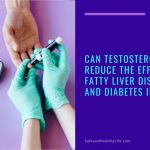Complications of Crohn’s Disease
Many individuals experience severe diarrhea, cramps or constipation which is uncomfortable. Many people do not pay close attention to these symptoms as after a short while they fade away and the individual suffering forgets.
However, some individuals experience severe constipation, diarrhea or cramps and they do not go away even after a short duration of time. If this happens it can be an indication that these are symptoms signifying a huge complication or disorder in the body and it is important to seek medical attention.
In Santa Monica, CA family medicine physician estimates that about 700,000 adults and children in the United States are suffering from Crohn’s disease. There is no known cure for this illness but there are effective treatments that help manage the symptoms.
Some treatments are efficient enough to completely eliminate the symptoms permanently, though they require aggressive treatment to prevent complications.
Symptoms
Individuals suffering from Crohn’s diseases will experience severe diarrhea, cramps in the abdomen, abdominal pains, stool with blood, fever, mouth sores, loss of appetite, weight loss, sudden movements in the bowel, fatigue, sore anus or sores surrounding the anus which are extremely painful.
Individuals might experience some but not necessarily all these symptoms. Different individuals are affected differently by the disease, some experience severe symptoms while some experience very mild ones.
When it is developed, this disease has the capacity to cause life-threatening symptoms and severe complications. Crohn’s disease can be categorized into one of two ways, each with varying complications, local Crohn’s diseases which only affect the intestinal tract and systematic Crohn’s disease complications which affects the whole body. Systematic Crohn’s disease complications are also commonly referred to as extraintestinal complications.
Local Complications of Crohn’s Disease
Local complications include abscess, diarrhea, fistula, malnutrition, small intestine bacterial overgrowth (SIBO), strictures, and malabsorption. A fistula is defined as an abnormal communication between two hollow structures.
An abscess is defined as a pocket that is full of pus formed as a result of a bacterial infection. The abscess can be formed along the intestinal wall or on the anus and resemble a boil. The presence of an abscess is indicated by pain, swelling, and tenderness in the affected area. Once the pus has been drained from the sore the symptoms fade away and antibiotics can be prescribed to eliminate the infection.
When Crohn’s disease attacks the small intestine the bile salt diarrhea can be experienced as a complication. This is because the small intestine absorbs digestive juices like bile which assist the body in absorbing fat when the small intestines fail and they can no longer process the fat cells one will experience this type of diarrhea. This is also another reason that leads to malnutrition.
The inability to absorb bile salts from the small intestine will lead to the deficiency of fat-soluble vitamins such as Vitamin A, D, E and K. Deficiencies of the thesis’s vitamins will cause further complications such as bleeding disorders, weak bones and decrease in skin elasticity.
| Read also: How Switching to a Vegan Diet Can Help Your Inflammation and Arthritis |
Systemic Complications of Crohn’s Disease
Some of the systemic complications associated with Crohn’s disease are arthritis which is inflammation of the joints. Arthritis can manifest itself in either of the three types namely Peripheral, Ankylosing Spondylitis and Axial.
When joints become inflamed, they result in severe swellings in multiple joints, with pain as a predominant feature and extreme joint stiffness, especially in the mornings.
Peripheral arthritis can affect all the major joints in the body such as the knees, wrists, ankles, and elbows. Axial arthritis affects the lower part of the back i.e. the spine.
Ankylosing Spondylitis arthritis affects the spine and it has severe complications such as inflammation of the heart valves (endocarditis and pericarditis), eyes (conjunctivitis), and lungs (fibrosis).
This type of arthritis is unlikely to occur in individuals with Crohn’s disease and when it does it is initially diagnosed before the individual develops Crohn’s disease.
The life-threating conditions associated with chon’s disease include intestinal obstruction and perforation (rupture), which are surgical emergencies, and an increase in the risk of developing bowel or colorectal carcinoma.
Treatment
The treatment for chrons disease consists of anti-inflammatory drugs which are steroids and immune modulators such as azathioprine, methotrexate, and sulfasalazine.
About The Author:
Anne Kamwila is a freelance content writer and a digital marketer. She is passionate to write on health, technology, and business-related guides, news, and books.





